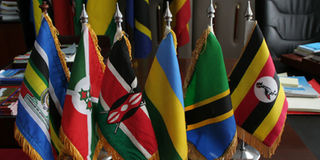EAC short of health specialists: report

What you need to know:
- According to the report, the regional bloc currently has less than 44.5 physicians, nurses and midwives per 10,000 people required to fast-track the attainment of health-related sustainable development goals (SDGs).
- As a result of the low number of health specialists vis-a-vis the population, EAC partner states cannot provide quality health care to their citizens without addressing the issue of training of human resources for health, both in terms of quality and quantity.
Arusha. The East African Community (EAC) partner states have a serious shortage of qualified medical specialists, a recent minister’s report shows.
According to the report, the regional bloc currently has less than 44.5 physicians, nurses and midwives per 10,000 people required to fast-track the attainment of health-related sustainable development goals (SDGs).
As a result of the low number of health specialists vis-a-vis the population, EAC partner states cannot provide quality health care to their citizens without addressing the issue of training of human resources for health, both in terms of quality and quantity.
“Our efforts to achieve SDG 3 on good health and wellbeing and in particular the universal health coverage is very much dependent on how we address existing human resources for health challenges,” said Ugandan minister of State for Health, Dr Sarah Opendi.
He revealed this, when speaking to the recently-held EAC ministerial meeting on health, noting that the population of the region had grown tremendously over the years without corresponding investment in healthcare staff training.
“Improving the quality of training through peer inspection will significantly build confidence in our training institutions and expand the growth-inducing impact of healthcare employment in various sectors such as trade and tourism,” he noted. The minister stressed a need for routine inspection of medical, nursing and other health professions’ training institutions to ensure quality services.
Dr Opendi, nonetheless, commended national medical and dental boards and councils of the EAC member countries - Tanzania, Uganda, Kenya, Burundi, Rwanda and South Sudan - for improving academic standards at medical schools. During the extra-ordinary meeting, the EAC announced plans to establish a college of medicine and health professions.
The facility will provide and award specialist postgraduate training fellowship qualifications in medicine and other health professionals in East Africa. EAC states’ adequate investment in specialised skills of their health workforce was also stressed recently by the EAC deputy secretary-general (Finance and Administration), Ms Jesca Eriyo.
Speaking during a regional meeting on the EAC centres of excellence in the medical and health sciences, she said increased investment would enable the partner states to address the shortage of medical staff.
EAC has designated five centres of excellence in health and allied sectors in the region. These are the Health Institute (Tanzania), Cancer Institute (Uganda) and Nutritional Sciences Institute in Burundi.
Others are Biomedical Engineering, E-health and Health Rehabilitation Sciences in Rwanda and Kidney Institute in Kenya.




